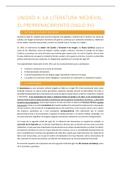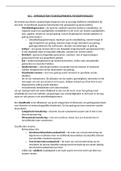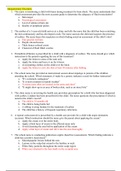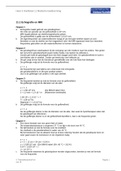Governance
The Governance and Politics of Social Problems - 31-10-2022
Thread of the lectures
1. Capitalism, crises, governance: why social problems demand government action. The
question is what government is and what governance does, why they do what they do
and that will be illustrated.
2. How governance does what they do. The theory of governance, theory of how to come to
legitimate governance.
3. Confront the way governance works with practical, practical problems.
4. Thinking about the what, how, why, and the differences between the practice and the
theory
5. What remains to be done? Good Governance and improvising society.
6. Back to the future? Perspective of what needs to be done was already written a few
decades ago.
7. Political side of the course; how are political systems functioning, comparing political
systems. The transformation of the political space in Europe. What kind of political
systems are going to be formed?
8. What does it mean for voting, the influence on political parties. Elections, and compare
these elections.
9. Euroscepticism and political trust. Policy at super national level. Elections and how
policies are made.
10. Populism and the mobilisation of discontent. Populism, is it really true? No.
11. Inequality. People not feeling politically secure anymore.
12. Q&A
Quizzes for bonus: open book. Only on fridays between 13:00 and 14:00.
Writing assignment: 3 open-end questions with max. 300 words per question. Giving feedback
to another student which will be discussed in lecture 7. Writing assignment: in English, in the
exam you can also answer in Dutch.
-> Similar to 3 questions on the exam.
Relevant dates:
- Questions writing assignment monday November 14: 17.30 - due sunday November 20:
23.59.
- Feedback due wednesday november 23.
- FeedbackFruits is used so you will be forwarded there.
Wednesday 21 December 8.35
,First lecture
Characteristics of European Democracy.
Europe is a continent of democracies. Relatively democratic, not all are democracies.
-> There are always some people that are excluded in a democracy.
Democracy stands and falls with acceptance and the belief in winning.
Holding elections is not a sign of democracy. Democracy requires several elements;
- Have access to media
- Individuele of gemeenschappelijke vrijheid
- Access to several campagnes.
- Free market of political money.
- Rechtsstaat, rule of law. Legitimacy, the public support. Limits the power of power
holders. The rules should be changed when the rules are violated.
- Behave your people. People need to behave democratically. We see a lot of moving away
from democratic law. Anti-democratic behavior is increasable.
Before 1920 there was no democracy. -> Spain and Portugal were till ‘70 ruled by fascism. A lot
of European countries don't have a democratic history.
Our behavior and support on democratic rules, makes it possible that democracy is still
executed.
We accept systems because we do what they say we do. The power of government is constrained
by constitutional rules which are upheld by an independent judicial system.
Legitimate: having the support of people.
-> There is a difference between legal and legitimate.
Why would you have democracy?
● Freedom, you can do and say things that are not allowed in other
● Peace
● More wealthy, higher health.
● More industrialized, more educated citizens, more urbanized.
● Good for your wallet.
Democracy: Automatic that it’s sort of logic that it is there.
Generations against democracy -> populists, zijn ze eigenlijk wel tegen de
democratie?
- The elite vs the people. The elite is corrupt and cannot be trusted.
- Populist parties are almost taking over governments in several countries. This will
change the way we develop.
- Cartel parties: manage the stage. People feel not represented by these parties, so people
won't be voting for these parties.
,Increasing fragmentation and populism: the sense of parties are becoming so small.
People feel not represented, but what is representation?
Cas Mudde: Populism is a symptom of a democratic deficit, not the cause…
- Key problem→ Many people still support the central idea of liberal democracy, but
distrust established parties and politicians. Nevertheless, people are ambivalent and
more centrist/moderate than often assumed.
Populists frame the elite and traditional institutions as ‘enemy of the people.’
Societal population: Meaningful party competition and can increase political participation and
trust. Yet, portraying opponents as ‘enemies’ undermines democratic values and practices.
Political polarization: Ideological and affective polarization: The left is suspicious of the right,
and the richt is suspicious of the left.
New Media and populism
⤶
-> It has nothing to do with the media. The channel doesn't
matter, but there is something in social media that has changed
the way we think about politics.
Social media: you can write anything. How can we filter that and
say: can you prove that? Do you have the data so that I can check
it?
Artificial intelligence and virtual intelligence makes it very
difficult to filter what is really true.
We create a world in which it is very difficult to determine what is true and what is not. We
create our own world.
Populists question the motives and morality of politicians, not their policies.
-> Center right vs extreme right (populists).
It basically says that it has basic sense, a logical way to do
it.
Immediate and simple solutions -> you have no time for a
complex debate, discussion.
Too much polarization: No acceptance of elite cooperation
and political compromise.
, Populism is a push-back to modern change. It is the opening up to the media, the world is
changing and people feel that they have to push-back.
The Governance and Politics of Social Problems - 31-10-2022
Thread of the lectures
1. Capitalism, crises, governance: why social problems demand government action. The
question is what government is and what governance does, why they do what they do
and that will be illustrated.
2. How governance does what they do. The theory of governance, theory of how to come to
legitimate governance.
3. Confront the way governance works with practical, practical problems.
4. Thinking about the what, how, why, and the differences between the practice and the
theory
5. What remains to be done? Good Governance and improvising society.
6. Back to the future? Perspective of what needs to be done was already written a few
decades ago.
7. Political side of the course; how are political systems functioning, comparing political
systems. The transformation of the political space in Europe. What kind of political
systems are going to be formed?
8. What does it mean for voting, the influence on political parties. Elections, and compare
these elections.
9. Euroscepticism and political trust. Policy at super national level. Elections and how
policies are made.
10. Populism and the mobilisation of discontent. Populism, is it really true? No.
11. Inequality. People not feeling politically secure anymore.
12. Q&A
Quizzes for bonus: open book. Only on fridays between 13:00 and 14:00.
Writing assignment: 3 open-end questions with max. 300 words per question. Giving feedback
to another student which will be discussed in lecture 7. Writing assignment: in English, in the
exam you can also answer in Dutch.
-> Similar to 3 questions on the exam.
Relevant dates:
- Questions writing assignment monday November 14: 17.30 - due sunday November 20:
23.59.
- Feedback due wednesday november 23.
- FeedbackFruits is used so you will be forwarded there.
Wednesday 21 December 8.35
,First lecture
Characteristics of European Democracy.
Europe is a continent of democracies. Relatively democratic, not all are democracies.
-> There are always some people that are excluded in a democracy.
Democracy stands and falls with acceptance and the belief in winning.
Holding elections is not a sign of democracy. Democracy requires several elements;
- Have access to media
- Individuele of gemeenschappelijke vrijheid
- Access to several campagnes.
- Free market of political money.
- Rechtsstaat, rule of law. Legitimacy, the public support. Limits the power of power
holders. The rules should be changed when the rules are violated.
- Behave your people. People need to behave democratically. We see a lot of moving away
from democratic law. Anti-democratic behavior is increasable.
Before 1920 there was no democracy. -> Spain and Portugal were till ‘70 ruled by fascism. A lot
of European countries don't have a democratic history.
Our behavior and support on democratic rules, makes it possible that democracy is still
executed.
We accept systems because we do what they say we do. The power of government is constrained
by constitutional rules which are upheld by an independent judicial system.
Legitimate: having the support of people.
-> There is a difference between legal and legitimate.
Why would you have democracy?
● Freedom, you can do and say things that are not allowed in other
● Peace
● More wealthy, higher health.
● More industrialized, more educated citizens, more urbanized.
● Good for your wallet.
Democracy: Automatic that it’s sort of logic that it is there.
Generations against democracy -> populists, zijn ze eigenlijk wel tegen de
democratie?
- The elite vs the people. The elite is corrupt and cannot be trusted.
- Populist parties are almost taking over governments in several countries. This will
change the way we develop.
- Cartel parties: manage the stage. People feel not represented by these parties, so people
won't be voting for these parties.
,Increasing fragmentation and populism: the sense of parties are becoming so small.
People feel not represented, but what is representation?
Cas Mudde: Populism is a symptom of a democratic deficit, not the cause…
- Key problem→ Many people still support the central idea of liberal democracy, but
distrust established parties and politicians. Nevertheless, people are ambivalent and
more centrist/moderate than often assumed.
Populists frame the elite and traditional institutions as ‘enemy of the people.’
Societal population: Meaningful party competition and can increase political participation and
trust. Yet, portraying opponents as ‘enemies’ undermines democratic values and practices.
Political polarization: Ideological and affective polarization: The left is suspicious of the right,
and the richt is suspicious of the left.
New Media and populism
⤶
-> It has nothing to do with the media. The channel doesn't
matter, but there is something in social media that has changed
the way we think about politics.
Social media: you can write anything. How can we filter that and
say: can you prove that? Do you have the data so that I can check
it?
Artificial intelligence and virtual intelligence makes it very
difficult to filter what is really true.
We create a world in which it is very difficult to determine what is true and what is not. We
create our own world.
Populists question the motives and morality of politicians, not their policies.
-> Center right vs extreme right (populists).
It basically says that it has basic sense, a logical way to do
it.
Immediate and simple solutions -> you have no time for a
complex debate, discussion.
Too much polarization: No acceptance of elite cooperation
and political compromise.
, Populism is a push-back to modern change. It is the opening up to the media, the world is
changing and people feel that they have to push-back.










